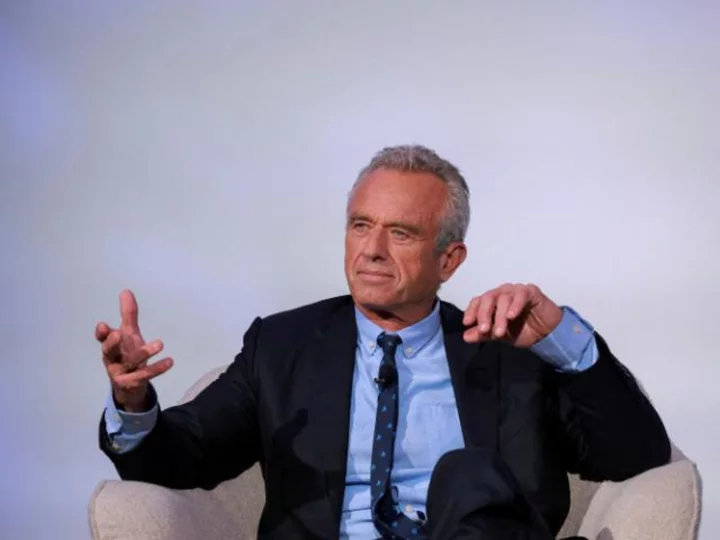
RFK Jr. is polling high for an independent. But it may not last
Robert F. Kennedy Jr. is expected to announce Monday that he is dropping out of the Democratic presidential primary and will run as an independent. The move would come after Kennedy's calls for a debate with President Joe Biden went nowhere and with Biden continuing to hold a 50-point advantage in primary polling.
2023-10-09 02:55
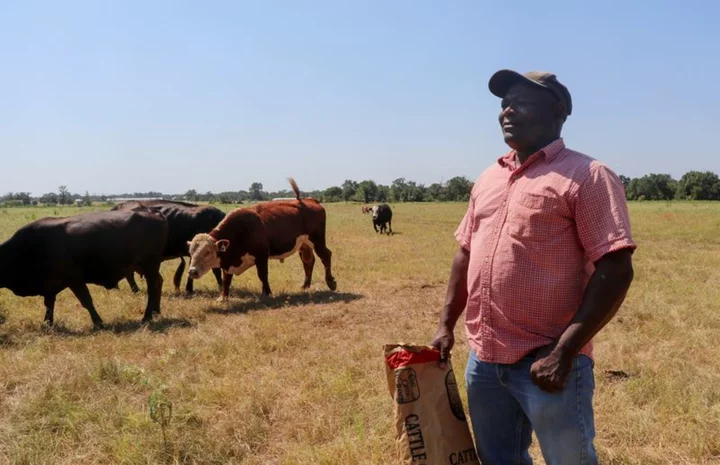
Bone dry on the range: Texas cattle ranchers battle drought, extreme heat
By Evan Garcia TENNESSEE COLONY, Texas The brown and black cattle of Texas, beloved symbols of the Lone
2023-08-10 18:19
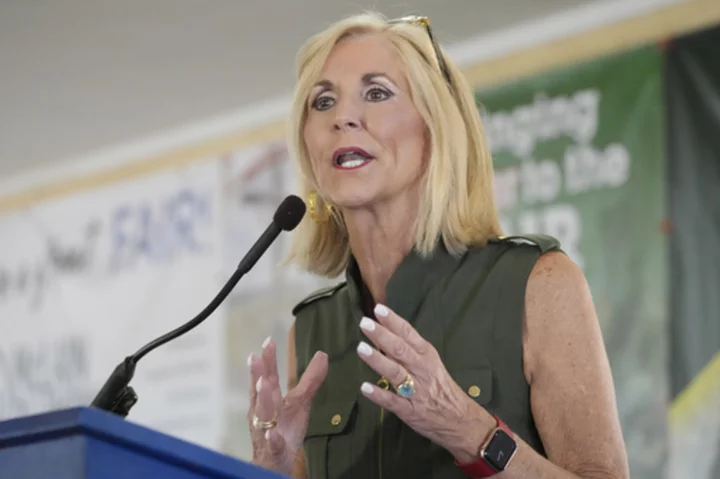
Mississippi seeks new court hearing to revive its permanent stripping of some felons' voting rights
Mississippi is asking a federal appeals court for a second hearing on whether it can permanently strip voting rights from people convicted of certain felonies
2023-08-19 03:29

The Jason Aldean 'Try That In A Small Town' controversy explained
Country music singer Jason Aldeon is facing an intense wave of backlash after his song, “Try That In A Small Town”, went viral online, prompting many people to accuse him of dog-whistle racism. The song sets footage of Black Lives Matter protests alongside lyrics like: “Try that in a small town / See how far ya make it down the road / Around here, we take care of our own.” The song continues: “Cuss out a cop, spit in his face / Stomp on the flag and light it up / Yeah, ya think you’re tough.” Sign up to our free Indy100 weekly newsletter The BLM protests were a direct reaction to the murder of African-American man George Floyd by a white police officer. The clips in the music video, which also include an attempted convenience store robbery and other apparent crimes, alternate with shots of Aldean and his band performing in the public square of Columbia, Tennessee. To make things worse, the video is shot in front of the Maury County Courthouse, which at times appears to be on fire with images of burning US flags projected onto it. It’s the same building where a mob hanged 18-year-old African-American Henry Choate from the balcony in 1927. Columbia is also the site of an infamous 1946 race riot that nearly resulted in the lynching of future Supreme Court justice Thurgood Marshall. Another lyric goes: “Got a gun that my granddad gave me / They say one day they’re gonna round up / Well that s--- might fly in the city / Good luck.” Country Music Television (CMT) confirmed Tuesday that it had pulled the video from rotation. Social media has been ablaze with the controversy for much of the last week. Democrat state representative for Tenessee, Justin Jones, called the song "heinous", and a "shameful vision of gun extremism and vigilantism". One user said that if Lil Durk, a black American rapper, made a response to Aldean's video called "Try That On The South Side of Chicago", it would likely be denounced as violent. Others shared videos explaining exactly why people are interpreting the song as dog-whistle racism. Aldean has stood by the song, saying: “There is not a single lyric in the song that references race or points to it – and there isn’t a single video clip that isn’t real news footage – and while I can try and respect others to have their own interpretation of a song with music – this one goes too far.” Needless to say, the people defending him are all the ones you might expect. Top Republicans have jumped to Aldean’s aid, including former president Donald Trump and Florida governor Ron DeSantis. “Jason Aldean is a fantastic guy who just came out with a great new song. Support Jason all the way. MAGA!!!” Trump posted on his Truth Social account. The conservative influencer Ben Shapiro posted a video to his YouTube channel titled “Jason Aldean REFUSES To Get Cancelled”, in which he discusses the controversy and takes Aldean’s side. Most recently, Aldean has been filmed at a concert over the weekend defending the song further. He said: “What I am is a proud American.” “I love our country. I want to see it restored to what it once was before all this bulls*** started happening to us.” “I love my country, I love my family, and I will do anything to protect that. I can tell you that.” Have your say in our news democracy. Click the upvote icon at the top of the page to help raise this article through the indy100 rankings.
2023-07-23 17:46

Has Tristan Tate got vaxxed for Covid-19? Influencer backs tennis icon's stance against jab: 'He’d be 'The Late Great' Novak Djokovic'
Controversial brothers, Tristan and Andrew Tate, have opposed Covid-19 vaccines for a long time now
2023-06-13 16:46
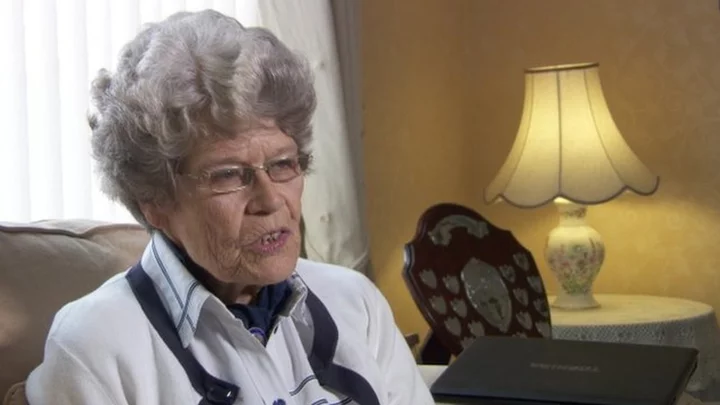
Maud Kells: Death of missionary who spent decades in Africa
Maud Kells is praised for her "tremendous courage" after spending decades as an aid worker.
2023-10-27 00:52

Horse racing authority calls for emergency summit with Churchill Downs in wake of 12 deaths
Horse racing’s oversight authority will hold an emergency summit with Churchill Downs, Kentucky’s racing commission and HISA veterinary teams to review information and analysis in the wake of 12 horse fatalities the past month at the home of the Kentucky Derby
2023-05-30 01:46

All the celebs at Beyonce's 'Rennaissance' premiere in London
The London premiere of 'Renaissance: A Film by Beyoncé' was a star-studded event with several musical icons turning up to support Queen Bey
2023-12-01 19:28

Stock market today: Asian shares boosted by Wall Street rise on consumer confidence and jobs
Asian shares are trading higher, boosted by a Wall Street rally that came on positive reports on consumer confidence and job openings
2023-08-30 14:50
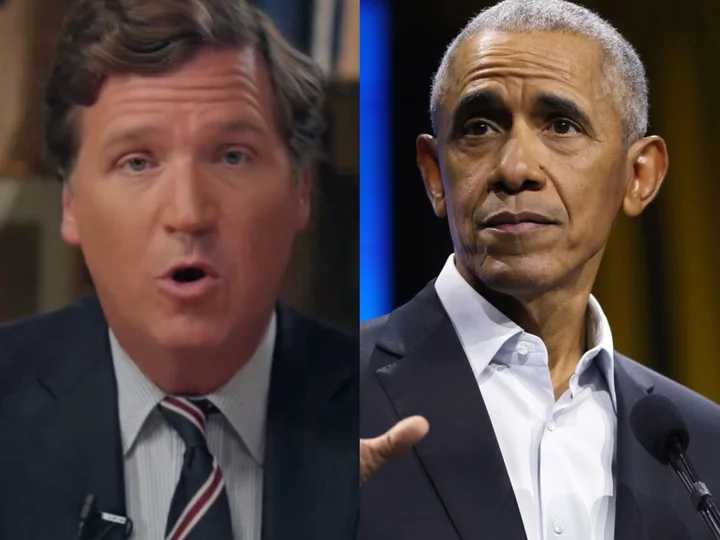
Tucker Carlson says Obama had a ‘strange and highly creepy personal life’ in Twitter episode
Tucker Carlson has made strong comments about Barack Obama’s personal life in his new Twitter show, Tucker on Twitter. On Friday, the 54-year-old American political commentator posted a new episode titled “Cling to your taboos!” where he said Mr Obama has a “highly creepy personal life”. In his 13-minute monologue, Mr Carlson spoke about how “fast” taboos are changing and how “American society isn’t overtly religious, but it’s governed by taboos”. The television personality claimed what Americans “are allowed to dislike is being dictated to us from above” before giving examples. Speaking of “the current behaviour of our politicians” and how “adultery was considered disqualifying [in 1992] for anyone seeking higher campaign”, Mr Carlson referenced Bill Clinton’s alleged extramarital affair with Gennifer Flowers, and how he went to “elaborate lengths to lie about the relationship, because he had no choice”. The commentator then pivoted to speaking about Mr Obama, saying: “By 2008, it was obvious to anybody who was paying attention that Barack Obama had a strange and highly creepy personal life, yet nobody ever asked him about it. “By that point, a leader’s behaviour within his own marriage, the core relationship of his life, had been declared irrelevant. It was Barak Obama’s business, not yours.” Mr Carlson did not elaborate on his reference to Mr Obama. The presenter went on to say that “one by one, with increasing speed, our old taboos have been struck down. “Those that remain have lost their moral force”. This isn’t the first time Mr Carlson has slammed Mr Obama in public. In 2021, he was widely mocked on Twitter after calling Mr Obama a “hater”. Carlson was responding to Mr Obama’s comments to CNN about right-wing news outlets, which he said were making money out of stoking fear and resentment among white Americans. “[They] do everything they can to give people a sense that their way of life is threatened,” Mr Obama told CNN’s Anderson Cooper. “Lo and behold, the single most important issue to them currently right now is critical race theory.” he said. “Who knew that that was the threat to our republic?” Speaking to his Fox News audience about Mr Obama’s comments, Mr Carlson said: “He’s back to let you know that if you’ve got any problem with your kids’ teachers telling them that some races are better than others that you, my friend, are a racist.” He went on to say that Mr Obama should have “retreated to Hawaii and Martha’s Vineyard”, where the former president and his wife, Michelle Obama, bought a $12m beachfront property. “That guy is a hater. For real.” he added. Mr Carlson’s latest episode of Tucker on Twitter has amassed over 45m views and almost 500k likes so far. Read More Madeleine McCann news – latest: Soil from reservoir compared to samples from prime suspect’s van Is Donald Trump going to prison? Trump lashes out at ‘deranged lunatic’ and ‘psycho’ Jack Smith as startling secret papers charges revealed Why did Fox News fire Tucker Carlson? Here are six theories Ukraine tells ‘clown’ Tucker Carlson to check his facts after pro-Kremlin rant Fox News accuses Tucker Carlson of breaching contract with new Twitter show
2023-06-10 14:59
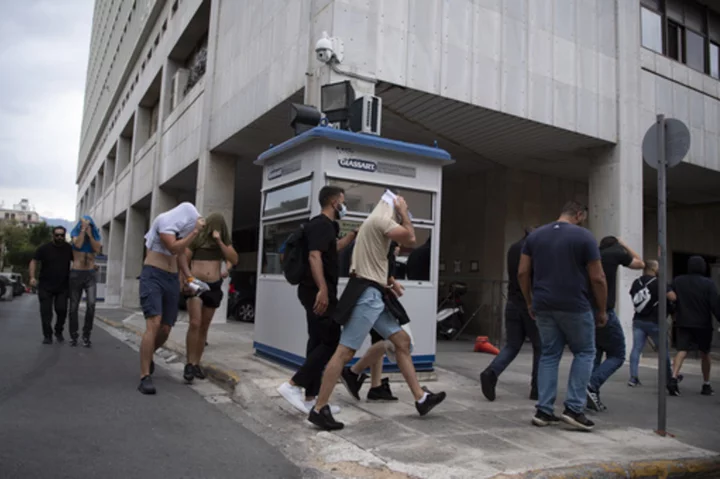
Greek authorities order 105 soccer fans to be detained pending trial after fatal clash
All 105 soccer fans suspected of being involved in extensive clashes in the Greek capital that ended in the death of a 29-year-old AEK Athens supporter have been ordered to be detained pending their trial
2023-08-14 05:58
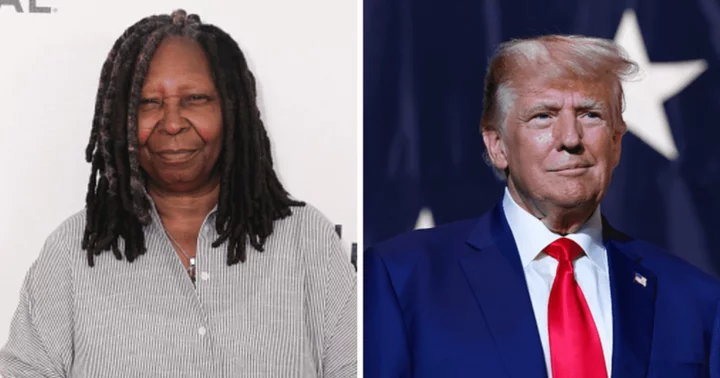
Whoopi Goldberg says Donald Trump's indictment is 'really sad' as her mood abruptly shifts on 'The View'
Whoopi Goldberg went from funny to dead serious in seconds during debate about Donald Trump
2023-08-03 10:20
You Might Like...
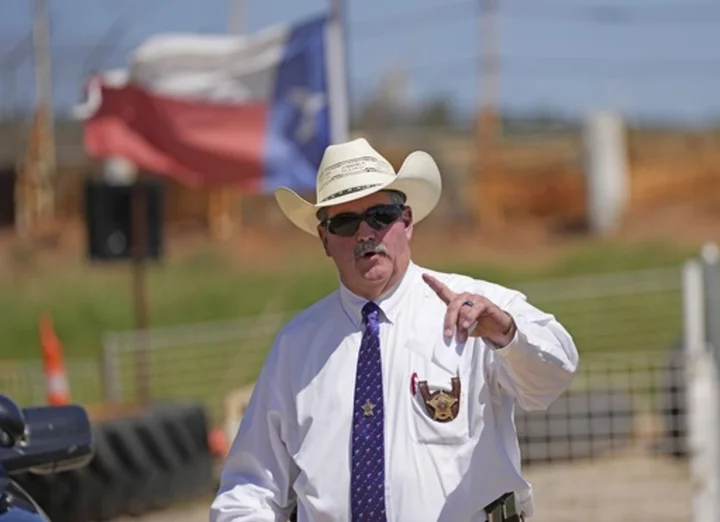
Deputies who reported a Texas sheriff to public corruption investigators say nothing was done

There Are Seven Differences Separating These Scenes—Try Spotting Them All

Tristan Tate spotted in his Lada flirting with woman at gas station, dismisses his 'suit game' critics as 'dorks'

Ford Gets More Government Support for EVs Wall Street Has Doubted
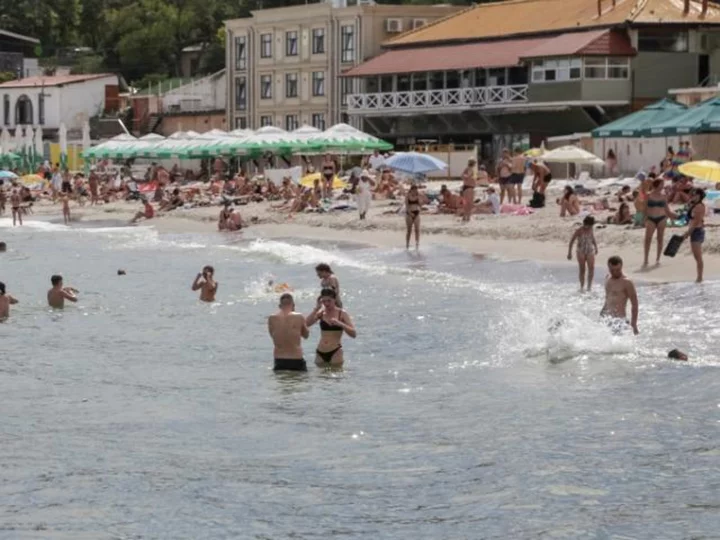
No bathing during air raids - but beaches in southern Ukraine port reopen

Electrical fire sends smoke billowing from under New York City's iconic Tiffany store
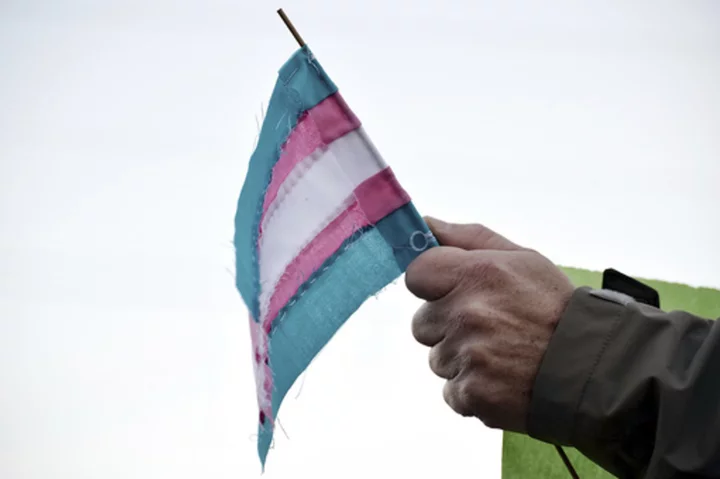
ACLU and families of trans teens ask Supreme Court to block Tennessee ban on gender-affirming care

Avril Lavigne and Tyga call it quits after just four PDA-filled months together but are still 'friendly'
